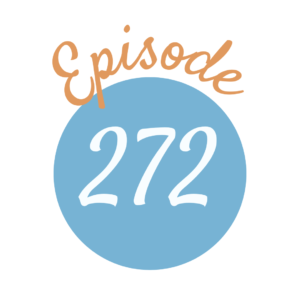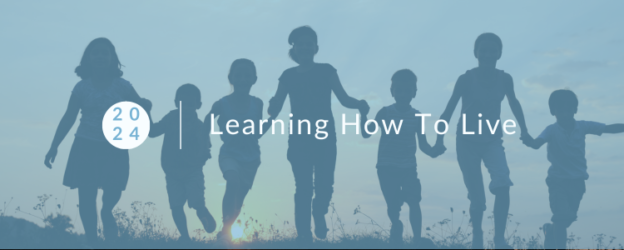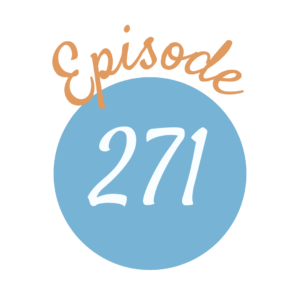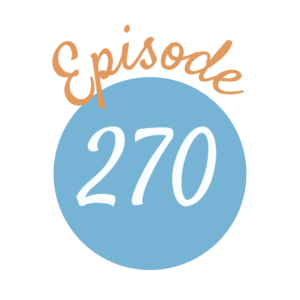
How do you determine which books are the “right” books for your children? Charlotte Mason said they must LIKE their books, right? Or did she? We explore the nuances of children’s taste and how much a role that should play in our choices of their lesson books in this episode.
Listen Now:

“The children must enjoy their books.” (3/178)
“What manner of book will find its way with upheaving effect into the mind of an intelligent boy or girl? We need not ask what the firl or boy likes. She very often likes the twaddle of goody-goody storybooks, he likes condiments, highly-spiced tales of adventure. We are all capable of liking mental food of a poor quality…” (3/168)
“[T]he happiness of the child is the condition of his progress; that his lessons should be joyous, and that occasions of friction in the schoolroom are greatly to be deprecated.” (1/178, emphasis added)
“Our conception of a child rules our relations towards him. Pour s’amuser is the rule of child-life proper for the ‘oyster’ theory, and most of our children’s books and many of our theories of child-education are based upon this rule. ‘Oh! he’s so happy,’ we say, and are content, believing that if he is happy he will be good; and it is so to a great extent; but in the older days the theory was, if you are good you will be happy; and this is a principle which strikes the keynote of endeavour, and holds good, not only through the childish ‘stage of evolution,’ but for the whole of life, here and hereafter. The child who has learned to ‘endeavour himself’ (as the Prayer Book has it) has learned to live.” (2/254)
“Your opinions about books and other things will very likely be wrong, and you will yourself correct them by and by when you have read more, thought more, know more. Indeed, no wise person, however old, is sure of his opinions.” (4/I/183-84)
“A child has not begun his education until he has acquired the habit of reading to himself, with interest and pleasure, books fully on a level with his intelligence. I am speaking now of his lesson-books, which are all too apt to be written in a style of insufferable twaddle, probably because they are written by persons who have never chanced to meet a child. All who know children know that they do not talk twaddle and do not like it, and prefer that which appeals to their understanding. Their lesson-books should offer matter for their reading, whether aloud or to themselves; therefore they should be written with literary power. As for the matter of these books, let us remember that children can take in ideas and principles, whether the latter be moral or mechanical, as quickly and clearly as we do ourselves (perhaps more so); but detailed processes, lists and summaries, blunt the edge of a child’s delicate mind.” (1/229)
“A corollary of the principle that education is the science of relations, is, that no education seems to be worth the name which has not made children at home in the world of books, and so related them, mind to mind, with thinkers who have dealt with knowledge. We reject epitomes, compilations, and their like, and put into children’s hands books which, long or short, are living. Thus it becomes a large part of the teacher’s work to help children to deal with their books; so that the oral lesson and lecture are but small matters in education, and are used chiefly to summarise or to expand or illustrate.” (3/226)
“We are apt to believe that children cannot be interested in the Bible unless its pages be watered down––turned into the slipshod English we prefer to offer them.” (1/247-48)
“We are determined that the children shall love books, therefore we do not interpose ourselves between the book and the child. We read him his Tanglewood Tales, and when he is a little older his Plutarch, not trying to break up or water down, but leaving the child’s mind to deal with the matter as it can.” (2/231-32)
“The teacher’s part in this regard is to see and feel for himself, and then to rouse his pupils by an appreciative look or word; but to beware how he deadens the impression by a flood of talk. Intellectual sympathy is very stimulating; but we have all been in the case of the little girl who said, ‘Mother, I think I could understand if you did not explain quite so much.'” (3/178)
“The real use of naturalists’ books at this stage is to give the child delightful glimpses into the world of wonders he lives in, to reveal the sorts of things to be seen by curious eyes, and fill him with desire to make discoveries for himself.” (1/64)
“This sort of weak literature for the children, both in any story and lesson books, is the result of a reactionary process. Not so long ago the current impression was that the children had little understanding, but prodigious memory for facts; dates, numbers, rules, catechisms of knowledge, much information in small parcels, was supposed to be the fitting material for a child’s education. We have changed all that, and put into the children’s hands lesson-books with pretty pictures and easy talk, almost as good as story-books; but we do not see that, after all, we are but giving the same little pills of knowledge in the form of a weak and copious diluent. Teachers, and even parents, who are careful enough about their children’s diet, are so reckless as to the sort of mental aliment offered to them, that I am exceedingly anxious to secure consideration for this question, of the lessons and literature proper for the little people.” (1/176)
“In their power of giving impulse and stirring emotion is another use of books, the right books; but that is just the question––which are the right books?––a point upon which I should not wish to play Sir Oracle. The ‘hundred best books for the schoolroom’ may be put down on a list, but not by me. I venture to propose one or two principles in the matter of school-books, and shall leave the far more difficult part, the application of those principles, to the reader.” (3/177)
“Children cannot answer questions set on the wrong book; and the difficulty of selection is increased by the fact that what they like in books is no more a guide than what they like in food.” (6/248)

Mystery and Manners, Flannery O’Connor
Vanity Fair, William Makepeace Thackeray
Moby Dick, Herman Melville
Arabella Buckley’s Eyes and No Eyes series

2024 ADE @ Home {Virtual Conference}
Episode 269: Jono Kiser on Good and Dangerous Books
Episode 7: Recognizing Living Books
Episode 119: Q&A on the Arabella Buckley Books
ADE’s Patreon Community





